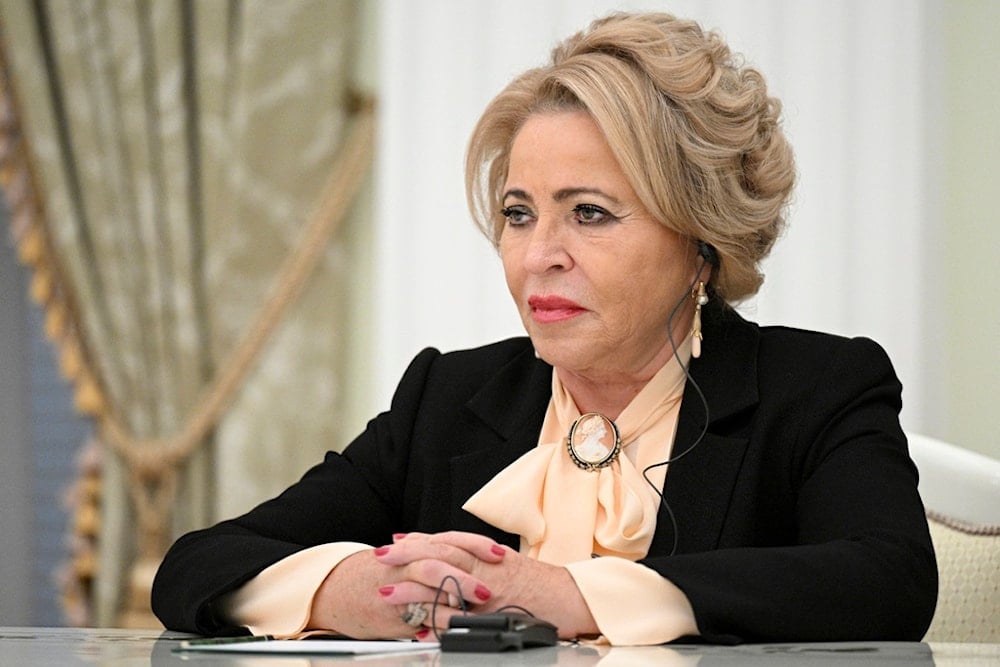BRICS summit, not US elections, to define history: Russia Fed. Council
Russia's Federal Council chief Valentina Matviyenko affirms that the increasing requests for BRICS memberships are proof that the bloc will change history, not the US elections.
-

Russian Federation Council Speaker Valentina Matviyenko attends a meeting at the Kremlin in Moscow, Russia, on Wednesday, Sept. 25, 2024. (AP)
Russian Federation Council Chairperson Valentina Matviyenko stated on Saturday that the three-day BRICS summit, rather than the upcoming US presidential elections, will determine the future trajectory of history and will be closely monitored across all continents.
In a post on her Telegram channel, Matviyenko wrote, "The world has changed seriously and radically. Therefore, the next presidential elections in the United States will not be the most significant event this year for the international community, and they certainly will not determine the future course of history; rather, the BRICS summit will be the main event."
Matviyenko emphasized her firm belief that in Kazan (the capital of the Republic of Tatarstan, Russia) in 2024, indicators and directions for human development will be established, not in the "shaky United States."
She added that "the three days of the BRICS summit and discussions among the leaders of the global majority in Tatarstan will have the main impact on our future," asserting that "it will be the Kazan summit, not the results of the US elections, that will influence the world, contrary to what US media are trying to impose."
Matviyenko expressed her conviction that responsible politicians in sovereign countries understand this, and the clear evidence is the level of representation at the summit and the increase in requests to join the bloc.
'Multinational union of equal members'
BRICS, an intergovernmental association founded in 2006, saw Russia assume the chairmanship on January 1, 2024.
This year marked the accession of new members, expanding the group beyond its original members—Russia, Brazil, India, China, and South Africa—to include Egypt, Ethiopia, Iran, the UAE, and Saudi Arabia. More countries have also been eyeing BRICS memberships, such as Turkey and Zimbabwe.
Russia's presidency aims to enhance multilateralism for equitable global development and security.
As part of its leadership, Russia is hosting over 200 political, economic, and social events throughout the year.
In September, an article published in The Times claimed that the expansion of BRICS "should worry NATO."
"BRICS is not, has never been and is not going to become a military union. BRICS is not even an international organization or an integration structure, but a multinational union of equal members," the Russian Foreign Ministry said, commenting on the article.
The Ministry added that BRICS is a comprehensive strategic partnership based on three key pillars: politics and security, economics and finance, and cultural and humanitarian cooperation.
"Relations between the BRICS partners are based on equality, mutual respect, openness, pragmatism, solidarity and, which is the most important of all, not opposing anyone," the statement read.
The Ministry noted that one of BRICS' primary objectives is to establish a fair and multilateral global economic system, highlighting the bloc's consistent support for the peaceful resolution of international disputes based on international law and respect for state sovereignty.

 3 Min Read
3 Min Read









